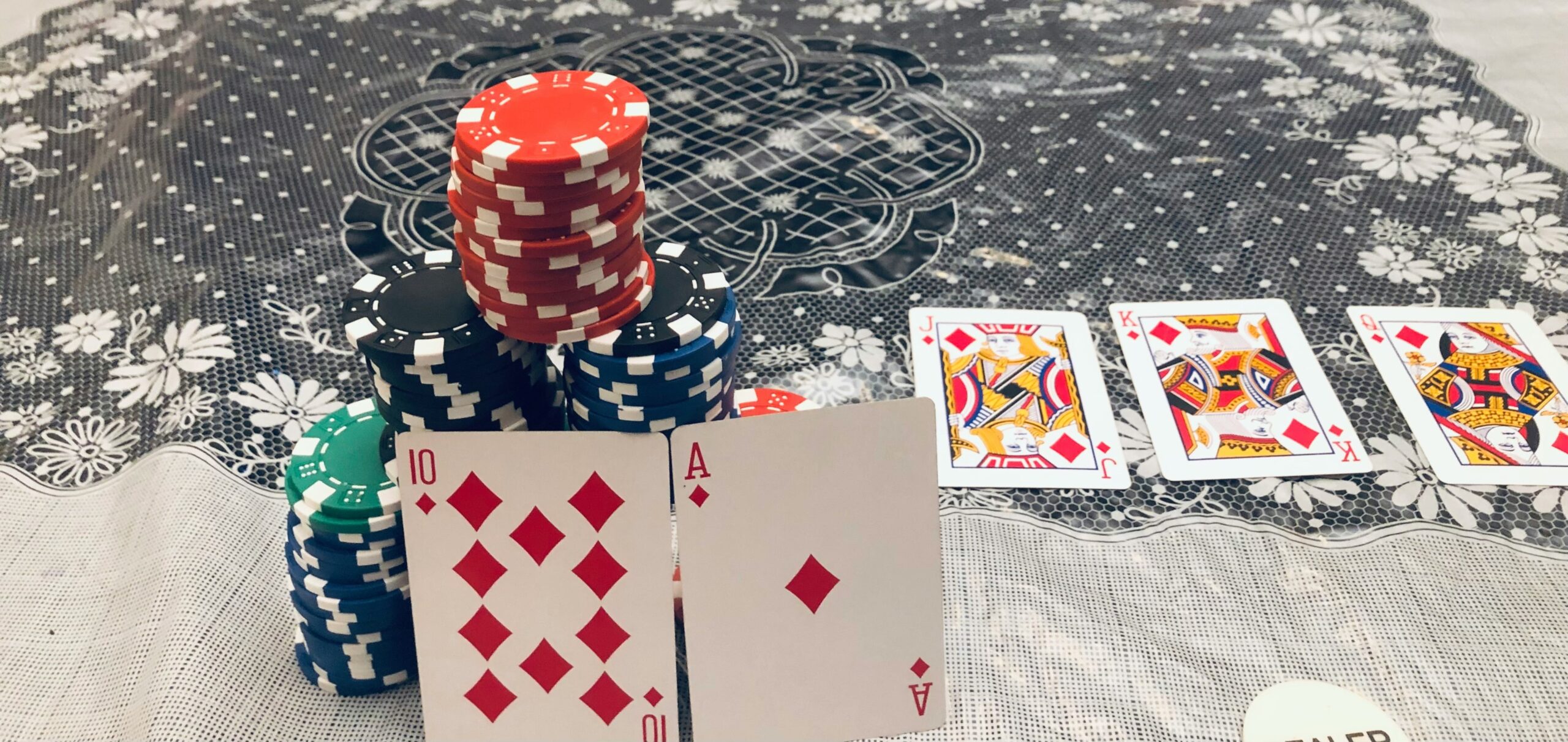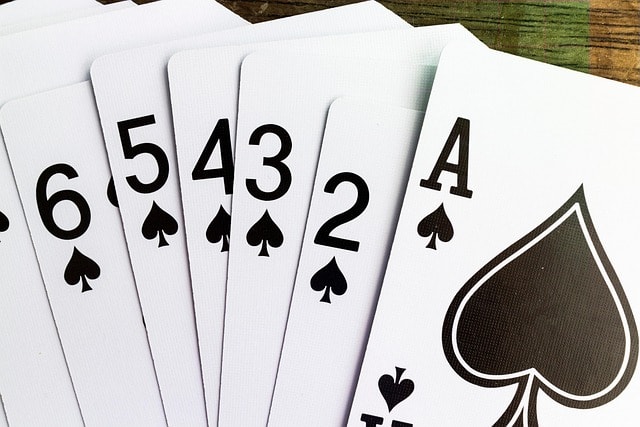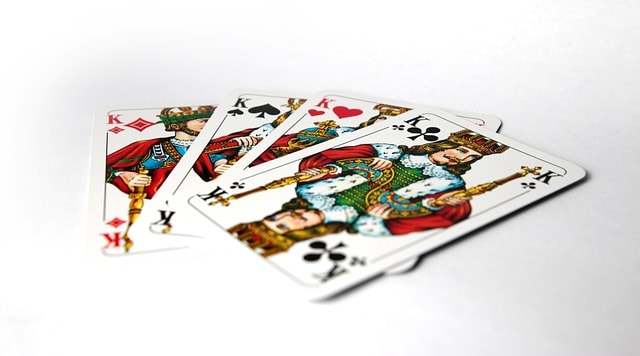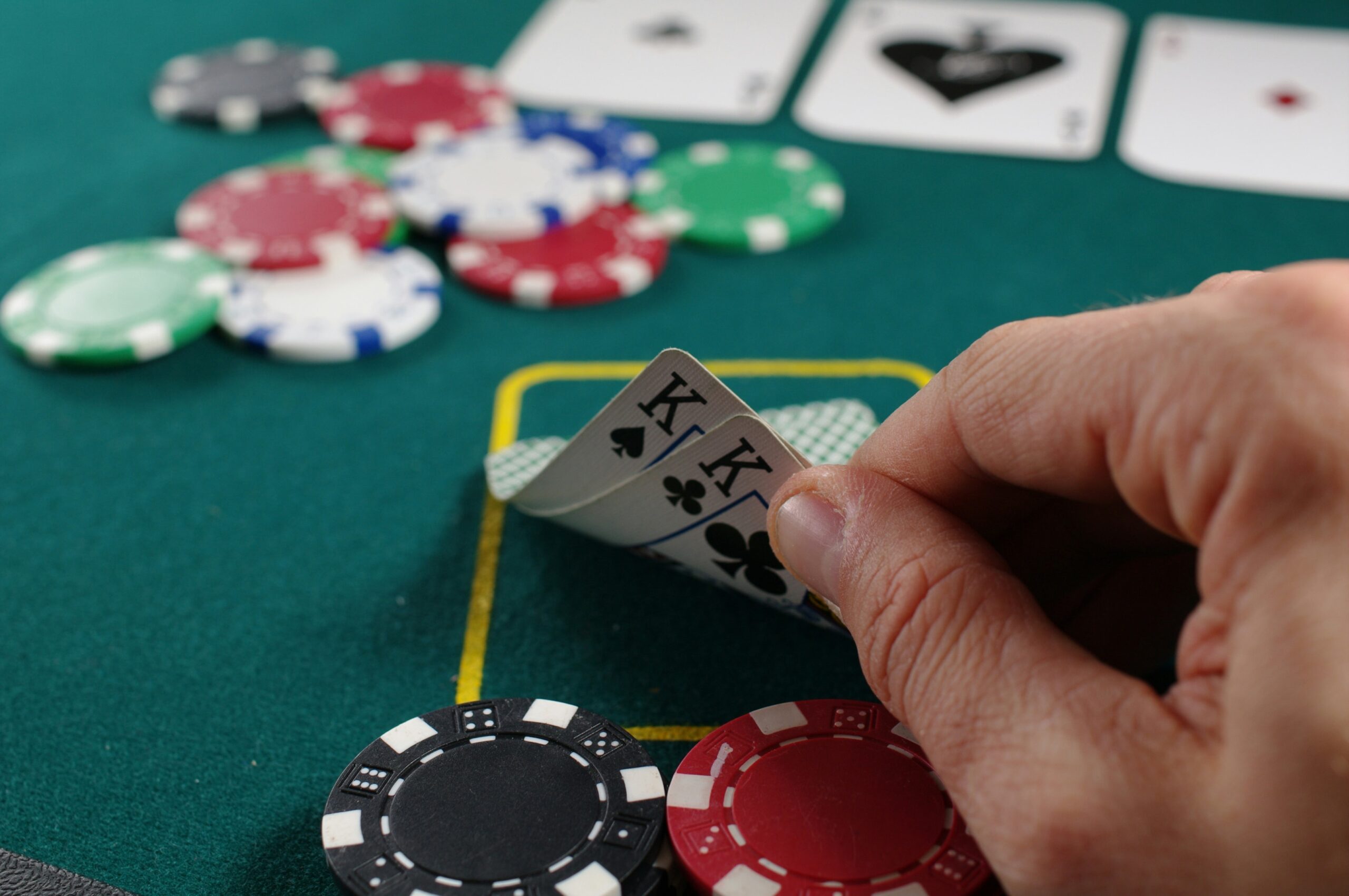

Omaha poker hand rankings are essential for making smart decisions in the game. Omaha is one of many card games, each with its own unique hand rankings and rules.
This guide will walk you through each ranking, from the powerful Royal Flush to a simple High Card.

CLICK TO COPY ↑
Welcome Package of Up To €365
Installments: €2.50 – Bonus Expiry: 60 days
Max Bonus: €365
Omaha poker follows the same hand ranking hierarchy as traditional poker, from the Royal Flush at the top to the High Card at the bottom.
Unlike Texas Hold em and Texas Hold'em, where players are dealt two hole cards and can use any combination of their hole cards and the five community cards, Omaha Hold em deals each player four hole cards and requires them to use exactly two, along with three of the five community cards, to form their best five-card hand according to poker rules.
This requirement adds a fascinating layer of strategy and probability, distinguishing Omaha from other poker variants.
Omaha poker has two main variants: Omaha Hi and Omaha Hi-Lo. In Omaha Hi, players aim for the highest hand, while in Omaha Hi-Lo, the pot is split between the highest hand and the best possible low hand.
This dual aspect of Omaha Hi-Lo requires players to consider both high and low hand combinations, adding complexity to the game. At showdown, the strongest hand wins the pot.
The four-hole card structure in Omaha poker often leads to stronger hands compared to Texas Hold’em because:
Grasping Omaha poker hand rankings is vital for informed decision-making during play. Each hand, from the unbeatable Royal Flush to the modest High Card, can significantly impact your strategy and betting choices.
By exploring each hand ranking, you’ll learn how to maximise the potential of your cards.
In both Omaha Hold 'em and Texas Hold 'em, the big blind is a forced bet posted by the player to the left of the dealer, ensuring there is an initial pot and initiating the betting action.
Making strong Omaha hands is both an art and a science, thanks to the unique structure of the game. In Omaha poker, each player receives four cards, but you must use exactly two of them, along with exactly three of the five community cards, to create your best five-card hand.
This rule opens up a world of possibilities, resulting in far more hand combinations than in games like Texas Hold’em.
To succeed in pot limit Omaha or limit Omaha, it’s crucial to evaluate not just the strength of your starting hand, but also how your hole cards interact with the community cards as the hand develops.
Look for opportunities to build powerful hands such as a straight flush, four of a kind, or a full house. Because you have four hole cards, the chances of making these high-ranking Omaha hands are greater than in Texas Hold 'em, but so is the competition—other players are also likely to have strong hands.
Managing the pot size is another key aspect of Omaha strategy. Since the best five-card hand often changes as new community cards are revealed, it’s essential to stay flexible and reassess your hand combinations at each stage of the game.
By understanding the hand rankings and how to combine your private hole cards with the community cards, you’ll be better equipped to make the most of every Omaha poker game.

The Royal Flush is the pinnacle of Omaha poker hands, consisting of the A, K, Q, J, and 10 all of the same suit. This hand is not only the highest-ranking hand in Omaha poker but also in all of poker. The rarity of a Royal Flush makes it a thrilling hand to achieve, and its unbeatable nature means that it will always secure the pot when played.
Drawing a Royal Flush is an exhilarating experience in any poker game. The odds are extremely low, making it a rare event for many players. Holding a Royal Flush allows you to bet and raise with confidence, knowing no other hand can beat it.
This hand epitomises the excitement and unpredictability that make Omaha poker so engaging and dynamic, showcasing the thrill of pre-flop Omaha hands.

A Straight Flush in Omaha poker:
A Straight Flush combines sequential and suited cards, making it a formidable hand that can dominate the table. With a Straight Flush, the likelihood of opponents having a stronger hand is slim, allowing you to control the betting and secure significant pots.
The excitement of drawing a Straight Flush and its strategic advantages make it a highly coveted hand in Omaha poker.

Four of a Kind, or Quads, is a powerful hand in Omaha poker, consisting of four cards of the same rank, such as four kings, plus any fifth card. In hand rankings, Four of a Kind is only surpassed by a Straight Flush and Royal Flush.
If two or more players hold Four of a Kind, the highest set of four matching cards wins. If the ranks match, the fifth card, or kicker, decides the winner.
This hand often leads to substantial pots and dramatic showdowns. Holding Four of a Kind provides a significant advantage, particularly when using your kicker to break ties and secure the win.

A Full House is a strong hand consisting of three cards of one rank and two of another, such as three aces and two kings. In Omaha poker, a Full House ranks above a Flush but below Four of a Kind.
When comparing two Full Houses, the hand with the higher three of a kind wins. If those match, the higher pair determines the winner. This hand can lead to intense betting rounds, especially when multiple players believe they hold the winning combination.
Recognizing the strength and ranking of a Full House is key to making strategic decisions in Omaha poker.
A Flush in Omaha poker consists of five cards of the same suit, regardless of their numerical order. It ranks above a Straight, Three of a Kind, Two Pair, and One Pair, but below a Full House, Four of a Kind, Straight Flush, and Royal Flush.
In Omaha poker, different suits do not influence hand rankings. If two players have Flushes with identical ranks, the pot is split, ensuring fairness and adding a strategic element to the game. Holding a Flush provides a strong chance of winning, especially against weaker hands, as long as they are all the same suit.
A Straight in Omaha poker consists of five consecutive cards in numerical order, such as 7-8-9-10-J. It ranks above Three of a Kind but below a Flush and higher combinations.
Players often pursue straight draws in Omaha, as the four-hole card structure increases the chances of drawing to a straight.
When two players have Straights, the hand with the highest top card wins. If both have the same highest card, the next highest card is considered. The highest possible Straight in Omaha, known as Broadway, is:
This hand creates exciting moments in the thrilling world of games as players strive to outdo each other with a winning hand of higher-ranking cards.
Three of a Kind, also known as Trips or Set, consists of three cards of the same value (rank), such as three jacks, plus two unrelated side cards. It ranks above Two Pair but below a Straight.
In a tie, the player with the highest three matching cards wins. If those are identical, the highest side card determines the winner, and if needed, the second-highest side card.
This versatility makes Three of a Kind a hand that can often lead to significant wins, especially with high side cards to break ties.
Two Pair consists of two different pairs and one unrelated card, such as two kings, two queens, and a seven. It ranks above One Pair but below Three of a Kind.
When multiple players have Two Pair, the highest pair is compared first, followed by the second pair, and finally the kicker if needed. If the pairs and kicker are identical, the pot is split equally.
This starting hand can lead to intriguing strategic decisions, especially when determining how much to bet based on the strength of your pair hands.
One Pair is the simplest hand in Omaha poker, consisting of two cards of equal value and three unrelated cards. It ranks above a High Card but below all other hands.
When two players have One Pair, the highest pair wins. If the pairs match, the highest kicker determines the winner. Although a lower-ranked hand, One Pair can still win pots, especially when opponents have weaker hands or fail to form stronger combinations.
A High Card hand is the weakest in Omaha poker, consisting of five unrelated cards with no combinations. When no player can make a better hand, the winner is determined as follows:
In the rare event of a complete tie, the pot is split. Understanding High Card situations in a low pot limit context, while not ideal, can help you make better decisions when lacking stronger combinations.

CLICK TO COPY ↑
Welcome Package of Up To €365
Installments: €2.50 – Bonus Expiry: 60 days
Max Bonus: €365
Omaha Hi Lo, also known as Omaha Hi-Lo or Omaha 8 or Better, adds an exciting twist to traditional Omaha poker by splitting the pot between the best high hand and the best low hand.
The high hand follows the standard Omaha hand rankings, rewarding strong hands like a royal flush or straight flush. However, the low hand introduces a new layer of strategy.
To qualify for the low hand in Omaha Hi Lo, a player must use five cards ranked eight or lower, with no pairs or cards higher than eight. The best possible low hand is A-2-3-4-5, known as the “wheel.”
If no player qualifies for a low hand, the entire pot goes to the high hand winner. When both a high and a low hand are present, the pot is split equally between the two.
Understanding how to identify and build both high and low hands is essential in Omaha Hi Lo. Players who can spot opportunities to win both halves of the pot—known as “scooping”—gain a significant edge in the game.
Mastering these hand rankings will help you make smarter decisions and maximise your winnings in every Omaha Hi Lo game.
Applying hand rankings in real Omaha poker games requires quick thinking and sharp observation. With so many possible hand combinations, it’s vital to accurately assess your own hand strength and anticipate what your opponents might be holding.
For example, even if you have a strong hand like a straight flush, you should always consider the possibility that another player could have a royal flush, especially in a game with multiple players and many community cards in play.
In Omaha Hi Lo, the complexity increases as you must evaluate both the high and low hand rankings. A hand that looks strong for the high pot may not qualify for the low pot, and vice versa.
The best players are those who can spot opportunities to win both sides of the pot, or at least avoid costly mistakes by recognising when their hand is vulnerable.
Practice is key to mastering hand rankings in Omaha. By studying different scenarios and playing regularly, you’ll develop the ability to quickly read the board, compare your hand to potential opponent holdings, and make confident decisions.
Whether you’re aiming for a strong hand like a royal flush or trying to secure the best low hand in a Hi Lo game, understanding and applying hand rankings will give you a winning edge in Omaha poker.
Understanding Omaha poker hand rankings is essential for making strategic decisions and improving your gameplay. F
rom the unbeatable Royal Flush to the often-overlooked High Card, each hand has its place in the game’s hierarchy.
By mastering these hand rankings and the rules that govern them, you can confidently navigate the complexities of Omaha poker.
Remember, knowledge is power, and with this guide, you’re well-equipped to dominate the table and enjoy the thrill of the game.
The highest-ranking hand in Omaha poker is the Royal Flush, which is made up of A, K, Q, J, and 10 of the same suit. This hand represents the pinnacle of poker strength.
In Omaha poker, a Full House is ranked higher than a Flush but lower than Four of a Kind.
In Omaha poker, suits do not determine the winner in a Flush tie; instead, the pot is split among the tied players.
If two players have the same high card, the winner is decided by comparing the next highest card in their hands. This process continues until a difference is found or all cards are compared.
In Three of a Kind hands, the winner is decided by the highest side card; if those are the same, the second-highest side card is then considered.
#AD Bonus Referrer Code is an affiliate of the brands we promote throughout this site. While we strive to maintain accuracy throughout our content, we do receive compensation for this promotion.
© 2025 BonusReferrerCode.com – All Rights Reserved
Worried about your gambling? When the fun stops – STOP!